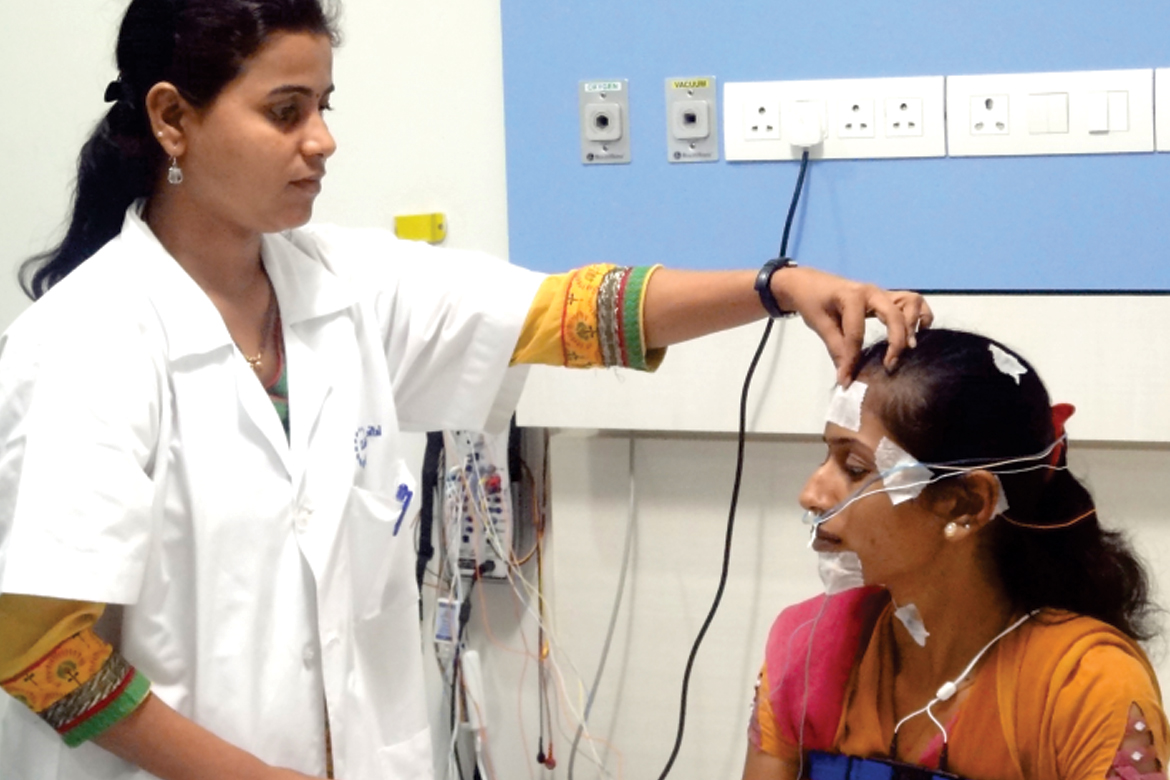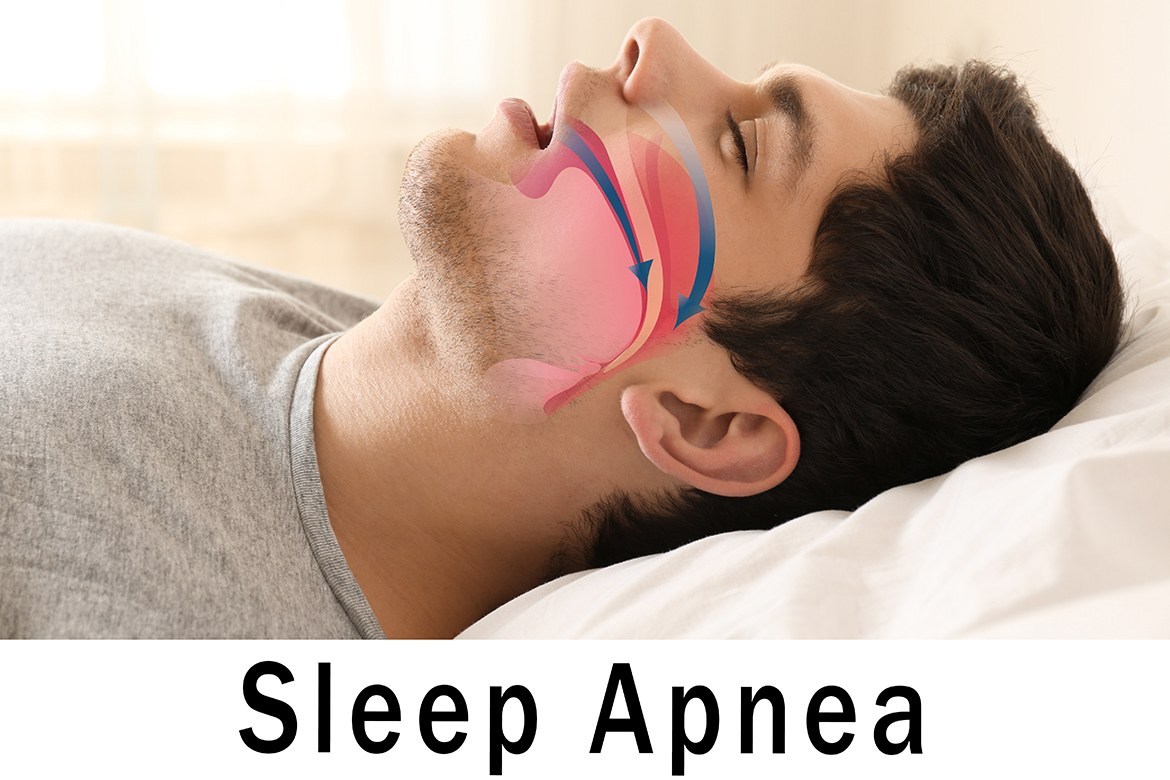Obstructive Sleep Apnoea (OSA) is a sleep disorder where a person stops breathing repeatedly during sleep. Breathing stops because the airway collapses and prevents air from getting into the lungs. Sleep patterns are disrupted, resulting in excessive sleepiness or fatigue during the day. OSA is a serious, potentially life-altering health issue that may lead to life-threatening conditions. It is easily identified and can be effectively treated.

WHO IS PRONE TO OSA?
- BMI > 30 and/or upper body obesity
- Large neck girth:
17 inches for men
16 inches for women - Males
- Post menopausal women
- Crowding of upper airway, including large tonsils or adenoids
- Abnormalities with the upper airway which may include a small jaw or large tongue
- Family history of OSA
WHAT ARE THE SYMPTOMS OF SLEEP APNOEA?
While there are many symptoms of Sleep Apnoea, the more significant are:
- Loud irregular snoring, snorts, gasps and other unusual breathing sounds during sleep
- Long pause in breathing during sleep
- Excessive daytime sleepiness
- Fatigue
- Obesity
- Changes in alertness, memory
- Changes in mood, personality or behaviour
- Impotence
- Morning headaches
- Frequent urination at night
WHAT IS THE TREATMENT FOR OSA?
After the clinical evaluation by a specialist, the patient will have to undergo sleep study, i.e., polysomnography and apneagraphy. A polysomnography defines and quantifies sleep apnoea, whereas an apneagraph localises the region responsible for sleep apnoea. OSA can be treated by two modalities – PAP therapy or surgery.
Positive Airway Pressure (PAP) therapy is the treatment of choice for Obstructive Sleep Apnoea . This therapy may include CPAP (Continuous Positive Airway Pressure) or BiPAP (bi-level positive airway pressure) applied through nasal or full face mask.
Surgery, body position modification and oral appliances are effective in certain individuals.With the help of coblation, a plasma-mediated radiofrequency-based ablation, the tonsils, turbinate, channels in the palate and bulk of the base tongue can be reduced with good results.
Any intervention should include lifestyle changes as weight loss (if needed), good sleep hygiene, and avoidance of alcohol, sedatives and hypnotics.
Along with state-of-the-art infrastructure and cutting edge technology, the Sleep Apnoea Clinic at Kokilaben Hospital has especially designed Slumber Suites. The overnight sleep study at Kokilaben Hospital is done in these sleep suites under expert medical supervision. The specialist Sleep Team comprises of an ENT Surgeon (Dr. Sanjiv Badhwar), Pulmonologist (Dr. S P Rai), Endocrinologists, Bariatric Surgeon and Dietitian.
 Back to Site
Back to Site